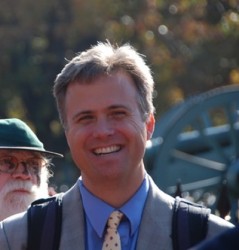
Timed for Valentine’s Day, the “To Cuba With Love” delegation will include some of our nation’s most dynamic activists, including leaders from the peace and justice movements, and the environmental, healthcare and LGBTQ communities, and representatives from Ferguson, Missouri, working on police accountability. Instead of traveling under the onerous license from the Office of Foreign Assets Control, they will now be traveling under a general educational license.
The delegation will have high-level meetings with government officials, visit members of the Cuban 5 who were recently released from US prison, talk to doctors who combat Ebola in Africa, meet with entrepreneurs about the new business possibilities, and interact with local people about cultural, economic, environmental, educational, agricultural and health care issues.
Numerous delegates have been involved with Cuban/U.S. issues for years — lobbying, protesting, advocating for the closure of Guantanamo Bay prison, setting up sister cities and committing civil disobedience by openly challenging the travel restrictions. Some, including CODEPINK co-founder Medea Benjamin, had their passports taken away and their bank accounts frozen for their activities. “It’s so exciting that after 50 years, the US government is finally beginning to lift the ridiculous restrictions on our right to visit our Cuban neighbors,” said Benjamin. “We look forward to the day when all restrictions are lifted.”
Local activist David Swanson will be joining the delegation to Cuba as a representative. “I’m eager to learn about Cuba and perhaps to share some of what I learn when I get back,” Swanson said. “There will be much to discover in many fields, I’m sure,” Swanson said, “and I want to hear how people in Cuba talk about war and peace. Last January in Havana 31 nations committed to never using war. As a resident of the nation that uses war more than any other, I look forward to visiting a part of the world so much more advanced in this regard.”
David Swanson is an author, activist, journalist, and radio host. He is director of WorldBeyondWar.org and campaign coordinator for RootsAction.org. Swanson’s books include War Is A Lie. He blogs at DavidSwanson.org and WarIsACrime.org. He hosts Talk Nation Radio.
His trip to Cuba has been crowd-funded.
According to the New York Times (and anonymous “thinkers” it hides behind a passive voice): “Congress is not likely to lift the calcified embargo against Cuba any time soon; but by itself, President Obama’s executive order to normalize diplomatic relations is expected to have a profound effect on how the two countries engage each other, simply by allowing more Americans to immerse themselves in Cuba’s culture. In doing so, the thinking goes, Americans will begin to empower Cubans by doing what tourists do best: hiring drivers, renting rooms, buying meals and souvenirs — spending money. Through these practical transactions, Obama said, American tourists will inevitably do the diplomatic work of sharing their values while ‘making the lives of ordinary Cubans a little bit easier, more free, more prosperous.'”
“That’s not how my thinking goes,” noted Swanson. “I’m not on a mission to proselytize for extreme consumption and don’t consider spending dollars to be a ‘sharing of values’ any more than I consider the bribing of politicians to constitute ‘freedom of speech.’ I’m going to Cuba to learn and try to understand the points of view to be found in a nation that was oppressed by Spain and then by the United States, that has been economically strangled by the U.S. government for over half a century, that turned to the Soviet Union for relief and has since been trying to make it on its own. How do they do it? How can we help? How have they managed such low violence and crime rates? How do they manage to treat education and healthcare as rights rather than privileges? Why do they send doctors to crises abroad, while the U.S. sends soldiers? What have they done right and where have they gone wrong? What do they want to change? What would they like people in the United States to know about them? These are things I hope to learn.”
More information about the trip can be found at http://codepink.org/cuba










